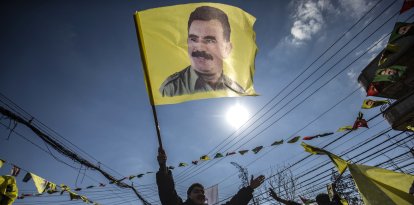IMF reaches $2.2 billion loan agreement with Ukraine
The agreement is part of a $122 billion international support package.

(Picture alliance / AA/photothek.de / Cordon Press)
On Friday, the International Monetary Fund (IMF) announced a preliminary agreement with Ukraine to provide the embattled country with $2.2 billion as part of a four-year loan.
The agreement, which still requires the approval of the IMF's executive director, was announced following the fourth review of the Fund's Extended Fund Facility Agreement (EFF), which is part of a $122 billion international support package.
This approval was the result of several discussions led by Gavin Gray, the IMF mission chief in Ukraine, and Ukrainian officials. During these discussions, they addressed fiscal strategies, risks related to state-owned enterprises and the energy sector, as well as the debt situation, with the aim of ensuring the country's economic stability.
"Understandings were also reached on an updated set of economic and financial policies to sustain macroeconomic stability and advance economic reforms," the IMF statement noted that fiscal risks will be monitored to ensure efficient use of public resources and restore debt sustainability.
It is important to note that Ukraine had already agreed to temporarily suspend payments on a significant part of its external debt, valued at $21 billion, for two years, starting in the summer of 2022. This measure was adopted to alleviate financial pressure on the country, especially in the midst of the war with Russia.
However, this suspension of payments is scheduled to expire on August 1st, forcing the Ukrainian authorities to renegotiate the debt terms to align with the country's current economic situation.
IMF staff have indicated that any debt restructuring must take into account two possible scenarios: an optimistic one, in which the war with Russia ends soon, and the economy recovers, and a more pessimistic one, which envisages a protracted conflict that negatively affects economic growth, suggesting that negotiations will be flexible.
RECOMMENDATION





















